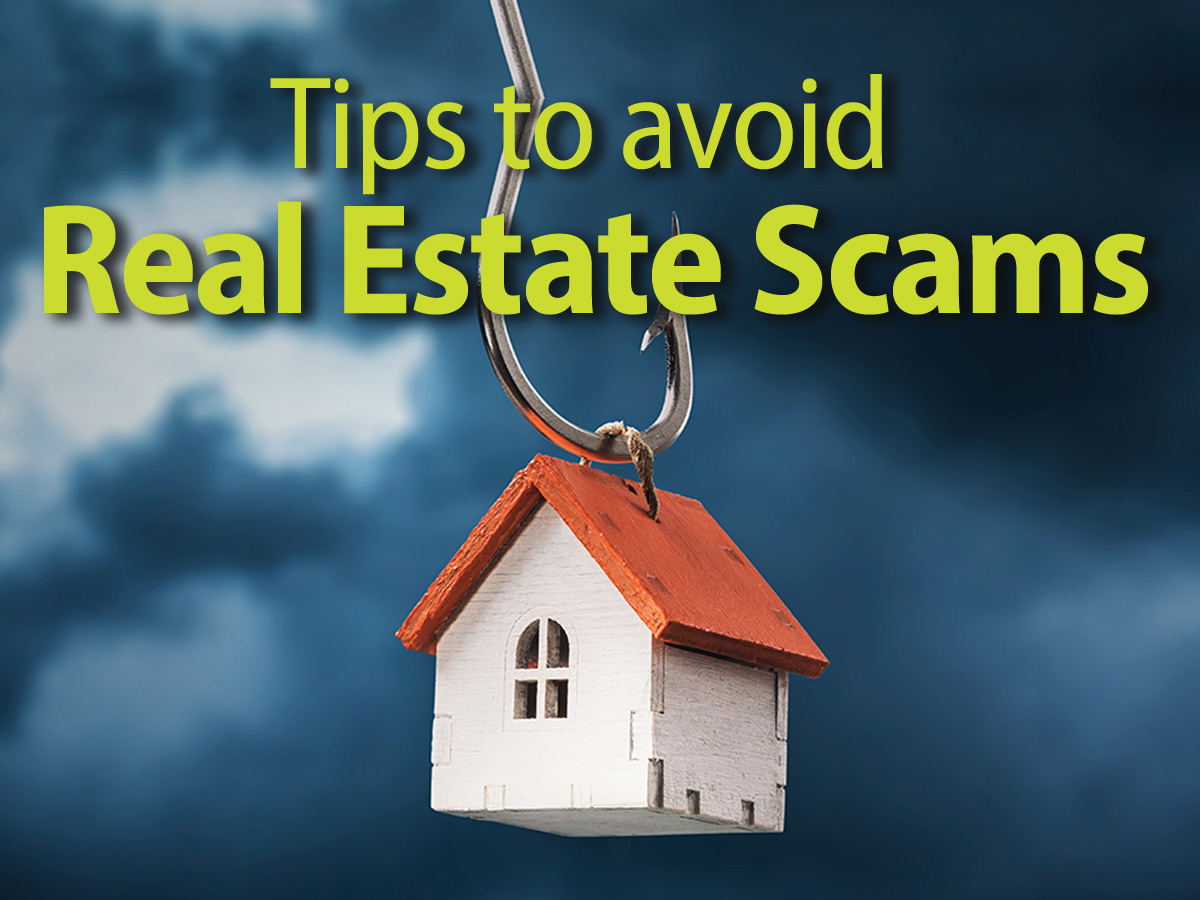 Fraud
FraudSeptember 18, 2024
Real Estate Scams and How to Avoid Them
Real Estate Scams and How to Avoid Them
Home is where our money is. For most of us, either our home is our single largest asset or rent is our biggest monthly expense. That’s why real estate fraud can be so devastating, and many consumer watchdog organizations report that it’s on the rise. Stay aware of these common real estate scams. Then check out our tips to protect yourself from this type of fraud.
Homeowner and Mortgage Scams
Before you buy, watch out for closing scams. They rely on illegal ‘spoofing,’ which is a digital trick that makes the scammer’s text, call, or email appear to be from a trusted source, such as your real estate agent or broker. They’ll send an urgent message claiming that closing costs are due early and, often, have increased. Scammers typically invent dire consequences to scare you into wiring them your funds and fast.
Once you own a home, fraudsters use different tactics. Often, they target seniors, who have the most equity, or homeowners experiencing difficult financial straits. In a loan-flipping scam, fraudulent lenders contact homeowners with an offer for a cash-out refinance – and then another and another. Each time, the homeowner pays exorbitant fees while reducing their hard-earned equity.
Foreclosure relief scams use public records to find homeowners at risk of losing their homes. Scammers make false promises to stop the foreclosure or refinance their mortgages.
Another version, called a leaseback scheme, is presented as ‘mortgage rescuing’; the scammer urges you to sign over the deed to them, after which they’ll rent your existing home back to you. They’re then free to raise the rent so it’s as high as the mortgage payment. The scammer profits while their victims lose their homes.
Rental Scams
Fraudsters use many tactics, including these two common rental scams:
Upfront payment scams often start with fake listings at below-market rates. The deal seems too good to be true – and it is! The scammers want you to act without thinking for fear of missing out. The ‘landlord’ may ask for a fee before you view the property. Or they may claim to be out of town and ask for the first month’s rent and/or a deposit, sight unseen.
Fake owner scams involve real, unoccupied homes. Scammers may show you the place and give you a key before taking your money when it’s not even their property to rent.
Tips to Avoid Real Estate Scams
Use a licensed real estate agent to buy or sell any property. They have the experience and knowledge to guide you through the process. Ask friends and family members for referrals or use programs like HomeAdvantage® to help you find the right home.
Work with trusted, established lenders. Red flags include higher fees, high-pressure tactics, and a lack of interest in your ability to repay. Fraudulent lenders may not have an office, so check for a physical address, and then confirm that it’s not a residence or empty lot!
Never pay before an in-person site visit and face-to-face meeting with the landlord or agent. For a rental, any payment beyond the Application Fee (standard for background checks) should come after all parties have signed the lease.
Never pay by cash, wire transfer, gift card, or cryptocurrency, such as Bitcoin; these payment methods are difficult to trace with no avenues for a refund. When using a paper check, make it payable to a person or business, never to “Cash.”
Confirm claims. Make sure the property exists! If you can’t go in person in a timely manner, start with Google Street View. To discover who really owns a property, check the public records available from your county clerk’s office and at some public libraries. Also, neighbors can be invaluable sources of information.
Feel free to ask people for identification, and always check professional credentials. Lawyers need to be listed on your state bar’s website. Real estate agents, brokers, and appraisers must all be licensed by your state, which will have searchable records online.
Confirm unusual updates, such as changes to payment amounts or methods. Email accounts can be hacked, so it’s best to get a voice confirmation. Go to previous communications to find a reliable phone number.
Once you know how to spot a real estate scam, it’s easier to protect yourself and your hard-earned funds. If something seems out of the ordinary or too good to be true, often times it is. Always reach out directly to your agent or Mortgage Advisor.
